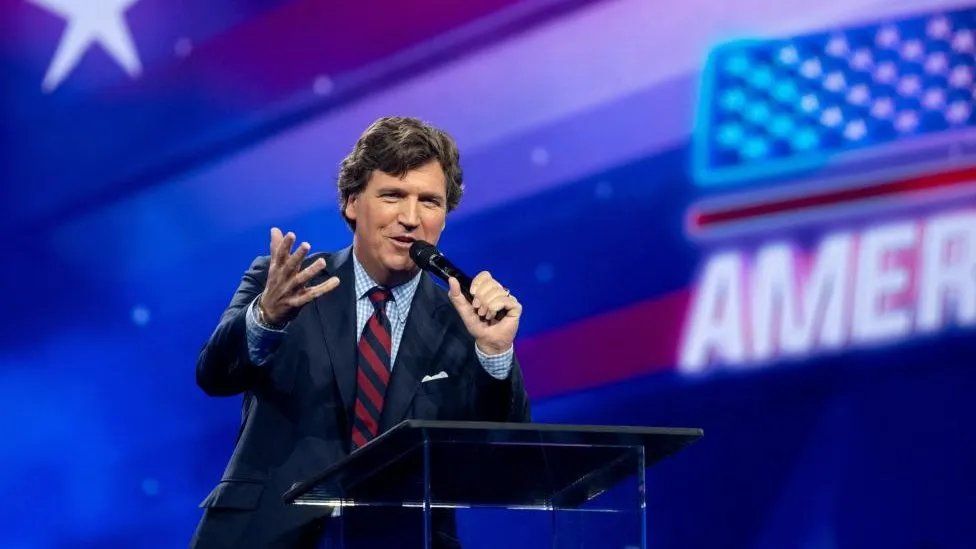

In a significant turn of events, former Fox News host Tucker Carlson has conducted an exclusive interview with Russian President Vladimir Putin in Moscow, marking Mr. Putin's first one-on-one interaction with a Western journalist since the onset of the full-scale war in Ukraine.
During an announcement video preceding the interview, Tucker Carlson emphasized the importance of providing Americans with comprehensive information about the conflict in Ukraine, which he believes they are "implicated in." His decision to interview Putin stemmed from his conviction that mainstream media has failed to adequately inform the public, thus leaving them uninformed about a conflict that is "reshaping the world."
Furthermore, Carlson expressed his dissatisfaction with the media's portrayal of Ukrainian President Volodymyr Zelensky, whom he previously referred to as a "dictator." He criticized what he described as "fawning pep sessions" aimed at promoting Zelensky's agenda and garnering support for increased US involvement in the war, labeling it as government propaganda rather than journalism.
Reactions and Criticisms from Various Quarters
The announcement of Tucker Carlson's interview with Vladimir Putin sparked a wave of reactions and criticisms from media professionals, politicians, and observers:
- Western Journalists: Some Western journalists expressed frustration over their inability to secure interviews with Putin, despite repeated requests to the Kremlin. The BBC's Russia Editor, Steve Rosenberg, revealed that the BBC's requests had been consistently denied.
- Media Critics: Critics questioned the timing and intent of Carlson's interview, highlighting the ongoing restrictions faced by Russian journalists and the imprisonment of American journalists reporting on the conflict from the Russian side.
- Public Figures: Public figures weighed in on the interview, with some echoing Carlson's sentiments about the need for balanced reporting and others expressing skepticism about the motives behind the interview.
The Implications for Global Media and Journalism
Tucker Carlson's interview with Vladimir Putin carries significant implications for global media and journalism:
- Media Integrity: The interview raises questions about journalistic integrity and the responsibility of media outlets to provide unbiased and comprehensive coverage of international conflicts.
- Public Perception: The manner in which the interview is conducted and received will shape public perception of both Tucker Carlson and Vladimir Putin, influencing attitudes and opinions on geopolitical issues.
- International Relations: The interview has the potential to impact diplomatic relations between the United States and Russia, as well as perceptions of Russia's actions in Ukraine within the international community.
As the world awaits the airing of Tucker Carlson's interview with Vladimir Putin, it is evident that the repercussions of this encounter extend far beyond the realm of media and journalism, touching upon broader geopolitical dynamics and the pursuit of truth amidst conflicting narratives.











